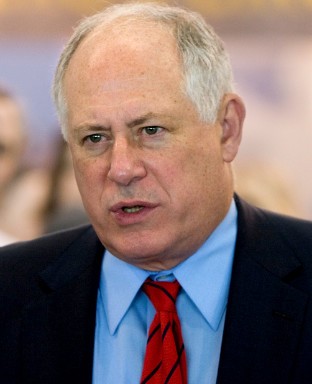A historic ban

After weeks of deliberation, Illinois Governor Pat Quinn on Ash Wednesday signed a bill abolishing the death penalty in Illinois. Archbishop Desmond Tutu, author Scott Turow, Sister Helen Prejean (author of Dead Man Walking) and many others urged Quinn to sign the bill, while State Attorney General Lisa Madigan and many prosecuting attorneys urged him to veto it. I added my name to a list of Chicagoans opposed to the death penalty.
Since 2000, Illinois has had a moratorium on the death penalty. Earlier, a group of Northwestern journalism students had started to investigate the death penalty and discovered that out of 25 cases since 1977, juries and judges had convicted and sentenced to death 13 people who were later found to be innocent; in other words, Illinois very nearly executed 13 innocent people. At that point then governor George Ryan declared: "When I was a pharmacist, I couldn't have stayed in business if I got it right only 50 percent of the time." In 2003 Ryan took 167 people off of death row.
Read our latest issue or browse back issues.
A Roman Catholic, Quinn listened to Anglican Archbishop Desmond Tutu, consulted the Bible and remembered the late Cardinal Joseph Bernardin's words: "In a complex, sophisticated democracy like ours, means other than the death penalty are available and can be used to protect society."
Everyone agrees that executing innocent people is unacceptable. But what about the guilty, the confessed, the remorseless, the perhaps proud killer? I learned a lot about this issue from a member of my congregation, Jeanne Bishop. Jeanne is a public defender and vocal opponent of the death penalty. When she talks about capital punishment you listen. In 1990 her 25-year-old sister Nancy, who was three months pregnant, and Nancy's husband were murdered in their suburban home. A young man was waiting for them. He shot Richard first, fired at Nancy's swollen belly, then left her to bleed to death. He was arrested six months later. He has shown no remorse.
After the murders, Jeanne continued to advocate for abolishment of the death penalty. She wrote an essay about her experience and convictions in Religion and the Death Penalty: A Call for Reckoning. With lawyerly logic she recites the arguments for capital punishment and refutes them point by point. She is particularly eloquent as she discusses the notion that executing the murderer will bring closure to the victim's loved ones. "Killing the killer doesn't close anything, certainly not my grief," Jeanne wrote. She finds the saying "an eye for an eye" insulting. "Imagine, if all [that] my sister's killer could give me in return for my loved one's lives were his life. His death could never begin to pay for theirs."
Then Jeanne says, "I forgive Nancy's killer . . . not because he has an excuse—he has none whatsoever. I forgive not because he asked for it; he has not. I do not forgive for him. Rather I forgive for the One who asked me to and taught me to."
What a powerful Lenten lesson for the year when the death penalty was abolished in Illinois.






